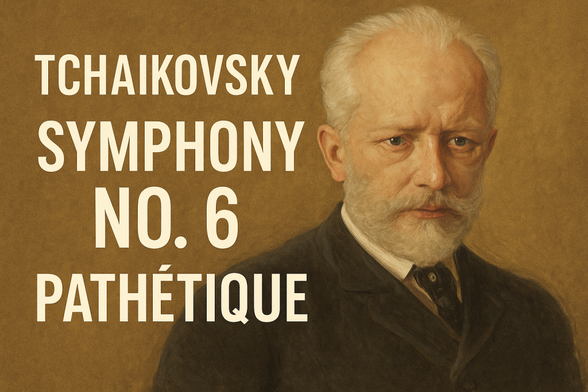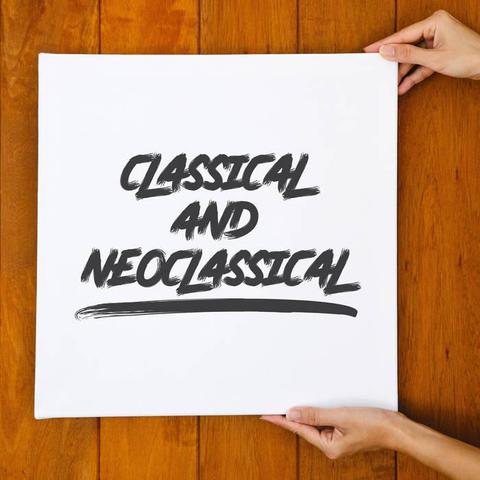TikTok launches new AI-powered ad tools in Symphony suite, letting marketers create 5-second video ads from text prompts or images. AI avatars can now showcase products, model clothing, and demo apps. Major push to automate ad creation and reduce costs. #TikTok #AI #DigitalMarketing #SocialMediaAds #Symphony #TikTokAds #AIAdvertising #MarTech #VideoAds #Automation
#Symphony
Entrance of the Gods into Valhalla | Richard Wagner https://youtu.be/w8jDFuBgvc4 #music #classical #symphony #orchestra #top
Entrance of the Gods into Valhalla | Richard Wagner https://youtu.be/w8jDFuBgvc4 #music #classical #symphony #orchestra #top
Estonian National Symphony Orchestra 🇪🇪 / Neeme Järvi
Furtwängler: Symphony No. 2 (2025)
#ClassicalMusic #Symphony #ModernClassical
https://open.spotify.com/intl-de/album/4fB1T8C4h6jqW88omo3SlX?si=eWmGRtIQT02BbCWTl3kw7w
Sehen Sie den Text des Liedes “Symphony” von Clean Bandit
#CleanBandit #Symphony
https://daletra.top/clean-bandit/liedtexte/symphony.html
A symphony by Mathilde Kralik von Meyerswalden, Austrian composer, written in 1903 that deserves to be played more often (in my opinion):
Lyrics for the song “Symphony” by Clean Bandit
#CleanBandit #Symphony
https://daletra.com/clean-bandit/lyrics/symphony.html
Ver la letra de la canción “Symphony” de Clean Bandit
#CleanBandit #Symphony
https://daletra.net/clean-bandit/letras/symphony.html
More music from the year 1902 for #MusicMonday
Ernest Bloch (1880-1959):
Symphony in C-Sharp Minor, B.29 (1901-1902)
https://youtu.be/PzwqZO8oGYk
#ClassicalMusic #RomanticMusic #Symphony
Vancouver show hopes to bridge the worlds of symphony and video games
An upcoming Vancouver concert will feature symphonic renditions of music from some of the world's most popular video games — and the orchestra's director wants to make new fans of orchestral music in the process.
#music #videogames #concert #symphony #Vancouver #News
https://www.cbc.ca/news/canada/british-columbia/vancouver-video-games-orchestra-show-1.7552850?cmp=rss
Check out the lyrics for the song “Symphony” by Clean Bandit
#CleanBandit #Symphony
https://daletra.com/clean-bandit/lyrics/symphony.html
Tchaikovsky – 6th Symphony Pathetique
Tchaikovsky’s Sixth Symphony, the Pathétique, was his last symphony. The composer died just nine days after conducting its premiere in 1893. Some believe the music hints at his own death. Others think the symphony hides a secret programme Tchaikovsky had never disclosed.
Pathos
One of the most emotional pieces in music history, the work was entitled “The Passionate Symphony”, that means “passionate” or “emotional”, not “arousing pity”. The title “Pathetique” comes from the Greek “pathos”, meaning “deep emotion and suffering”.
The emotional intensity is off the charts. Tchaikovsky pours raw feelings into this piece: desperate passion, deep depression, and a sense of farewell. For this reason he called it the “most sincere thing” he ever wrote.
The piece is filled with extreme emotional contrasts. One moment it’s soft and sweet, the next it’s exploding with rage and despair. It feels deeply personal, which is why it hits so hard, still today.
The music
The first movement starts with a lonely bassoon playing a sad, sighing melody. Then it builds into a heartbreaking main theme in a storm of emotions.
The second movement is in 5/4 time, which was very unusual back then. You can consider it a waltz that keeps tripping over itself.
The third movement feels like it’s the finale (it’s a powerful, almost victorious march), which makes the actual slow finale even more shocking to listeners. It’s like Tchaikovsky is playing with our expectations.
The finale completely breaks the rules. Instead of ending with a triumphant finale like most symphonies, Tchaikovsky does something radical. He puts a slow, dying-away final movement that fades into a heartbreaking silence. Nobody was doing this at the time! Symphonies were supposed to end with a bang, not a whisper.
The mystery behind the symphony
Tchaikovsky’s sudden death remains a mystery. The official cause was cholera, but some believe he took his own life. Some even see the symphony as a coded farewell message, with the last movement representing his final surrender. At the time, being openly gay in Russia was impossible, and some theories suggest he was under pressure because of it.
The secret programme
The 6th symphony is not a program music, at least not in a official way. Some historian think that Tchaikovsky wrote a programme for this piece, but kept it secret and no one could ever see it. The secret programme of the symphony is about love between men: the search for it, from the beginning of the first movement; finding it, in the romantic andante theme (measure 89); and the attacks of a hostile world on it, in the agitated allegro vivo passage that follows (measure 161); and escape from that, in the return to the love theme (andante come prima, measure 305). The last movement, Karlinsky was told, is an elegy for a dead lover.
https://www.youtube.com/embed/SVnF3x44rvU
#6thSypmhony #classical #orchestra #pathetique #PyotrIlyichTchaikovsky #symphony #Tchaikovsky
Free download codes:
Michael HERTER - CLASSICAL and NEOCLASSICAL
"Classical music embracing interpretations of neoclassical compositions."
#bandcampcodes #piano #neoclassical #classical #classic #symphony #orchestralmusic #violin #solo #music
Status: trying to get back in the groove on the #symphony after a month in which I didn’t do a ton because I was busy with things like ramping up at a new job, giving a conference keynote, and running my first marathon. 😅 #composing #orchestra #music
Status: trying to get back in the groove on the #symphony after a month in which I didn’t do a ton because I was busy with things like ramping up at a new job, giving a conference keynote, and running my first marathon. 😅 #composing #orchestra #music
Orchestre de la Suisse Romande 🇨🇭 / Marek Janowski
Bruckner: Symphony No. 5 in B-flat (2010)
#ClassicalMusic #Romanticism #Symphony
https://open.spotify.com/intl-de/album/58gKpcS3xB5qC7WxdAxeo8?si=bMWbVf-vSgG8uHz2iWSRXA
I'm grateful this invitation from Symphony.Live popped up in my emails to watch/listen to Holst's Planets performed by London Symphony Orchestra and conducted by Sir Antonio Pappano. Something beautiful, and well worth the subscription. (And not US politics.) #classicalmusic #symphony #orchestra
https://watch.symphony.live/m/h6qHN5jI/pappano-and-the-planets
When ideals collapse, even the music
changes... 🎼⚔️
#Beethoven #Symphony #ClassicalMusic #Napoleon
#MusicHistory #ComposerLife #ArtInspiration
#MusicRevolution #CulturalImpact #HistoricalFigures
#MusicLovers #Inspiration #CreativeProcess
#MusicalGenius #RewritingHistory #FamousComposers
#MusicEducation #ArtisticExpression #Legacy
#TimelessMusic #MondayMood #monday
#TheHistoryAvenue
Listening to Schubert's unfinished 8th #symphony. This was also in an Akira Kurosawa #film set in postwar #Japan. A couple went around, and ran into various difficulties. They tried to go to a concert, but a scalper bought up all the tickets. So they went to a park. Broke the 4th wall. Talked about Schubert. I don't remember clearly.
But still, Schubert makes me think of people as individuals navigating an imperfect world, like embers from a campfire floating up towards the stars.
Free download codes:
Michael HERTER - PIANO
"A curated collection of piano compositions."
#bandcampcodes #piano #neoclassical #classical #classic #orchestralmusic #solo #symphony #music











